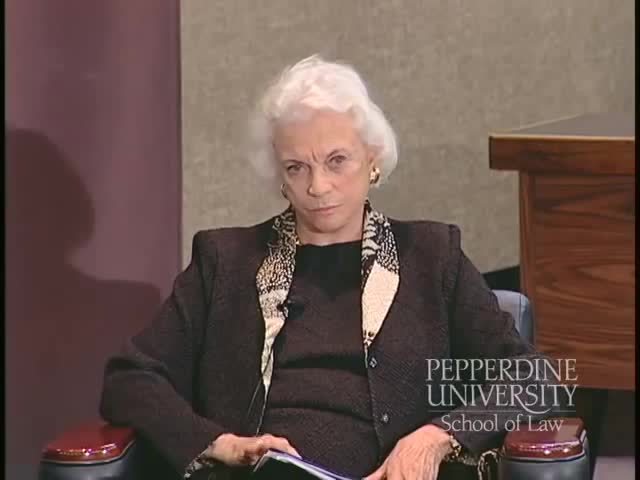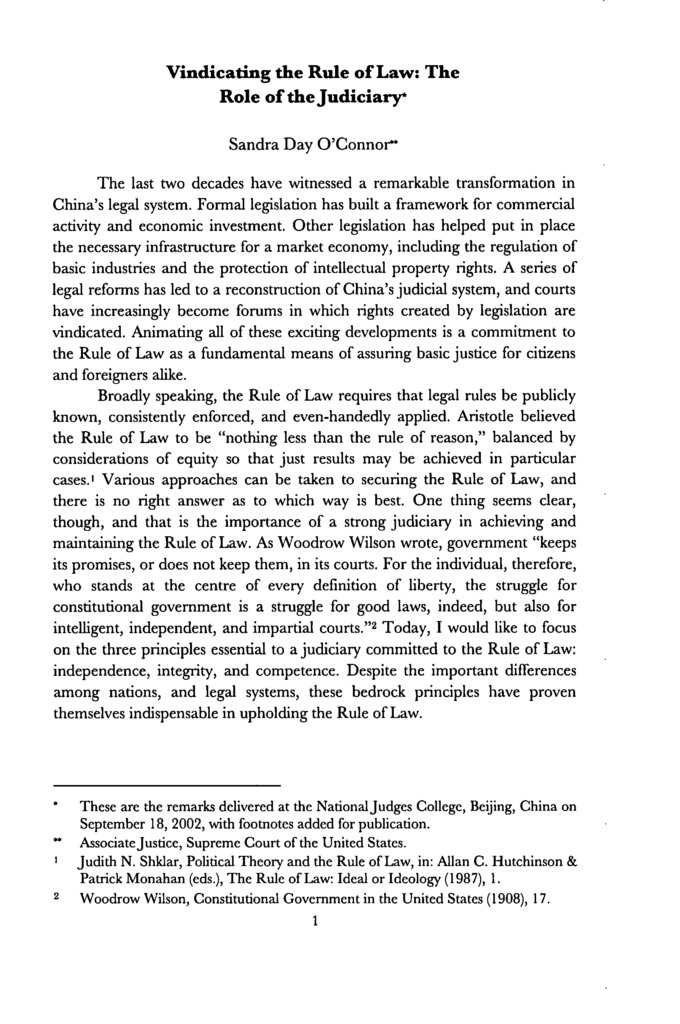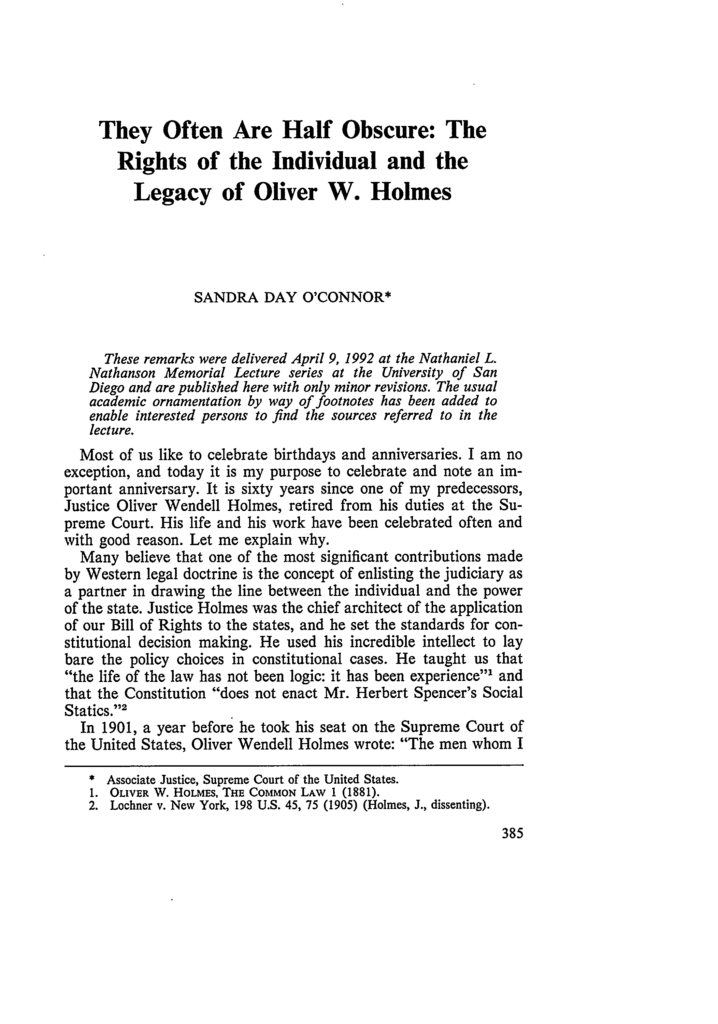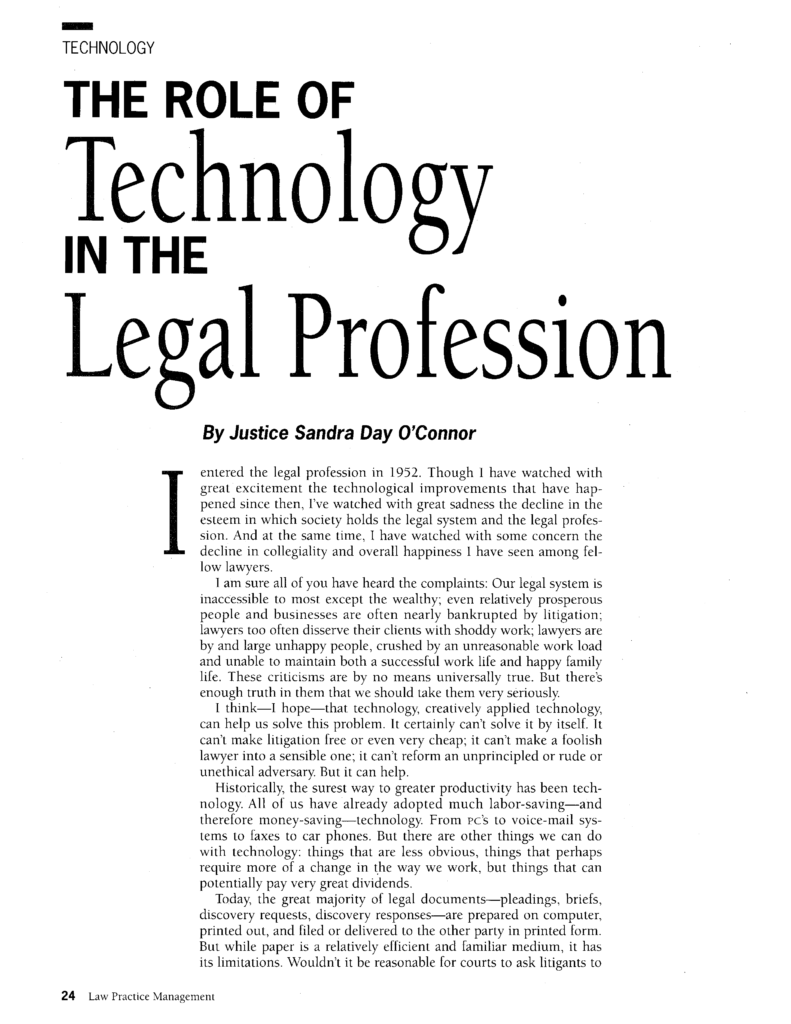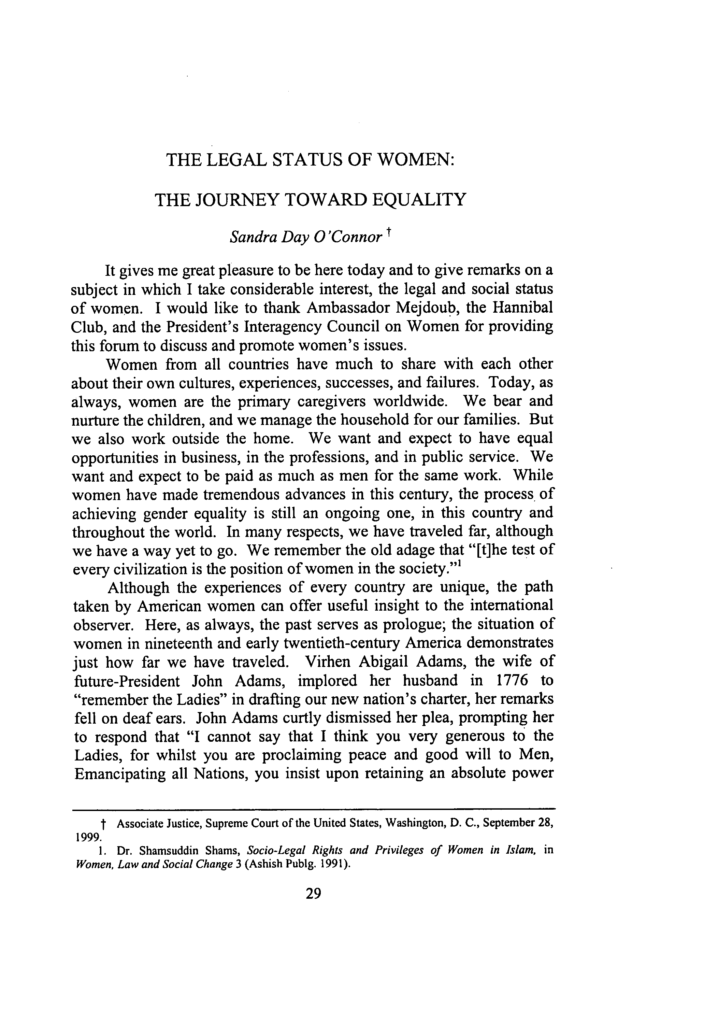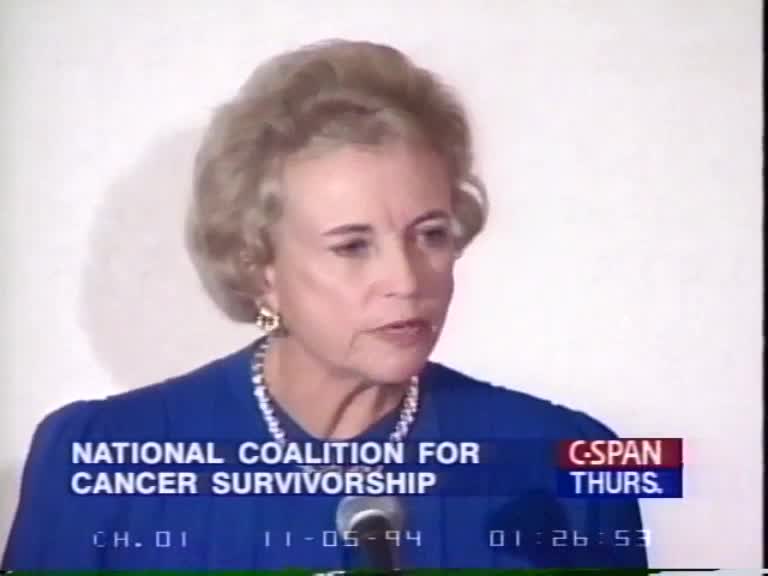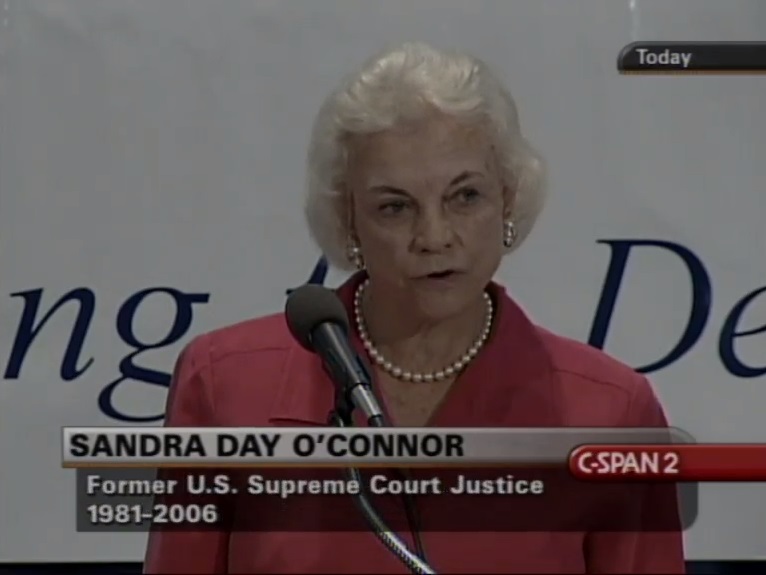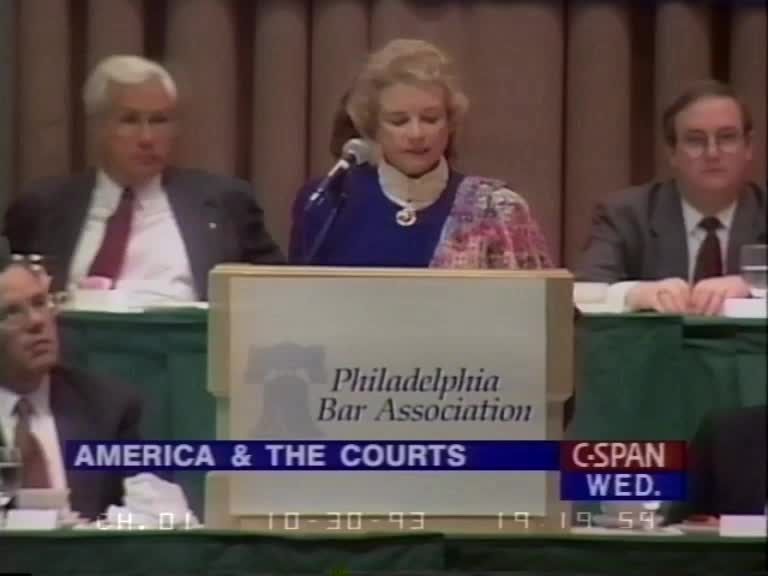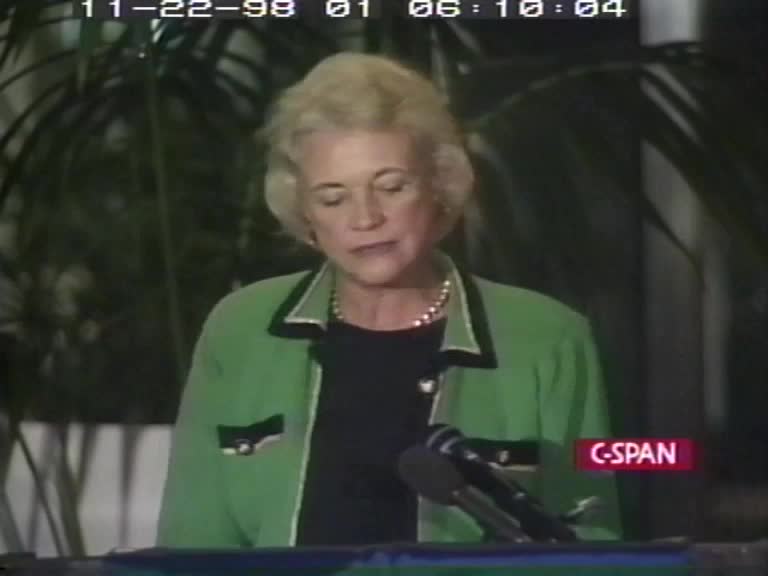William French Smith Lecture at Pepperdine University
Sandra Day O’Connor I have to tell one little story, though, about William French Smith, a man– Ken Starr This is your conversation. Sandra Day O’Connor But you weren’t quite finished, Ken Starr Please. Sandra Day O’Connor When I got out of Stanford Law School, it was back in the middle of the last century, long before any of your students had been born. This is why I got out of law school in 1952. And there were all these notices on the placement bulletin board at the law school Stanford Law graduates call our law firm, we want to talk to you. Well, I called every one on the bulletin. board, and not one of them would give me an interview. Not one. Well, I knew a young woman at Stanford as an undergrad, whose father was it gives them down on cracker. He was one of the warriors. And I said, talk to your dad, see if he’ll get me an interview with Gibson Dunn. And she did. And he did. And I made the trip down to Gibson Dunn on crusher in Los Angeles, and met with this distinguished looking lawyer and we talked to me, Oh Miss Day, you have a fine resume here to stay. But Miss Day, this firm has never hired a woman lawyer. And I do not see that time when we will. Our clients would not stand for it. Well, I looked sort of stricken, I’m sure. So he said, well, Miss Day, how well do you type? And I said, well, so so and he said if you can type well enough, we might be able to get you on here as a legal secretary. But I declined that opportunity. I must say that I was home in Arizona

